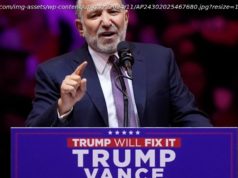Array
On the surface, it seems like an innocuous court case. A group of commercial fishermen are objecting to a rule by the National Marine Fisheries Service (NMFS) that forces them to pay for an NMFS employee to be on their vessel to enforce regulations.
But the required fee is only supposed to be imposed in three narrow circumstances, and none of those circumstances apply to the fishermen. The case has enormously far-reaching implications. The suit challenges the so-called « Chevron Deference » that allows regulators to radically expand their power and impose enormous regulatory burdens on Americans.
The theory that undergirds Chevron Deference is that Congress doesn’t have the time or resources to enforce their vaguely worded laws, leaving it up to federal agencies to fill in the blanks.
If ever the adage « Give them an inch and they take a mile » had any meaning, it applies to federal regulators aggrandizing power unto their own little fiefdoms.
Chevron arose when judges were willy-nilly substituting their policy preferences for those of the elected branch. But the doctrine has no constitutional basis, and it defies the Administrative Procedure Act, which requires that “the reviewing court shall decide all relevant questions of law, interpret constitutional and statutory provisions, and determine the meaning or applicability of the terms of an agency action.
Home
United States
USA — Financial The Most Important Supreme Court Case in Years Could End Federal Regulation...






